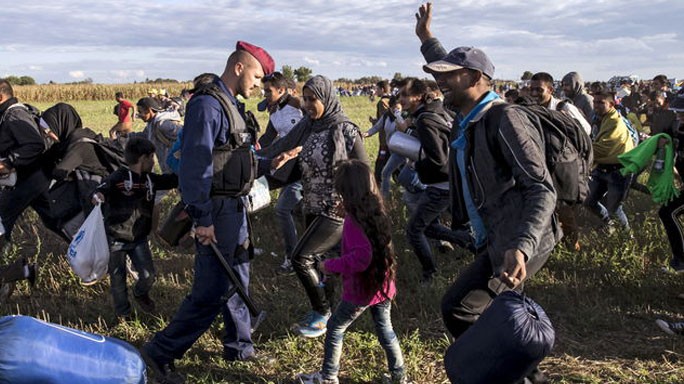After only a month of language lessons, Samer Alkhamran can already say this in German: “I will open my own cellphone repair shop.”
He speaks with an accent, and his syntax is a little shaky. But it’s music to the ears of officials in Germany who see Alkhamran, a 30-year-old who fled the civil war in distant Syria, as part of the solution to a looming problem right here at home.
International leaders and human rights organizations have lined up to praise Germany for its magnanimous response to Europe’s overwhelming migrant crisis. Calling it a moral duty, the government in Berlin has pledged to accept as many as 800,000 refugees this year from violence-racked countries, and potentially half a million more annually for several years to come.
Besides altruism, there’s a starkly practical reason for Germany to put out the welcome mat: The nation’s population is shrinking at an alarming rate, and it desperately needs skilled, motivated and industrious folks like Alkhamran to replenish its workforce and keep its powerhouse economy humming.
In other words, helping to alleviate Europe’s refugee crisis could help defuse Germany’s demographic one.
“We need people. We need young people. We need immigrants,” Interior Minister Thomas de Maiziere declared recently. “All of you know that, because we have too few children.”
Germany’s birthrate is the lowest in the world, with 8.2 babies born each year per 1,000 people, according to a study released this year by a German think tank. When it comes to reproducing, Germans now even underperform the Japanese, whose notoriously low fertility rate has long been the source of official hand-wringing.
By 2060, Germany’s population could drop from about 81 million today to as low as 68 million and would most likely be surpassed by Britain and France, potentially changing the balance of power in Europe.
See more at:
Miami Herald





